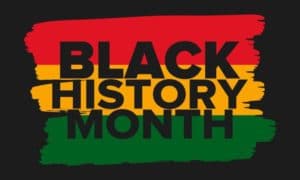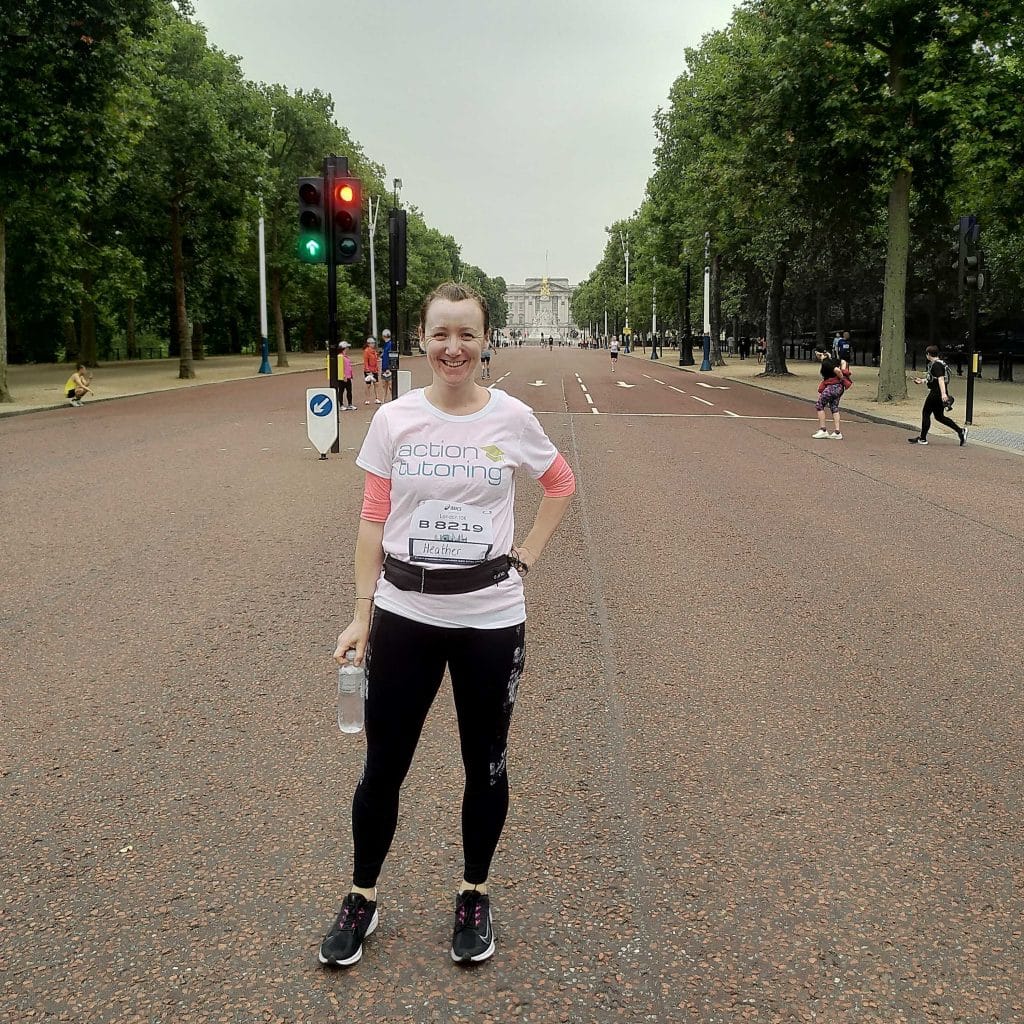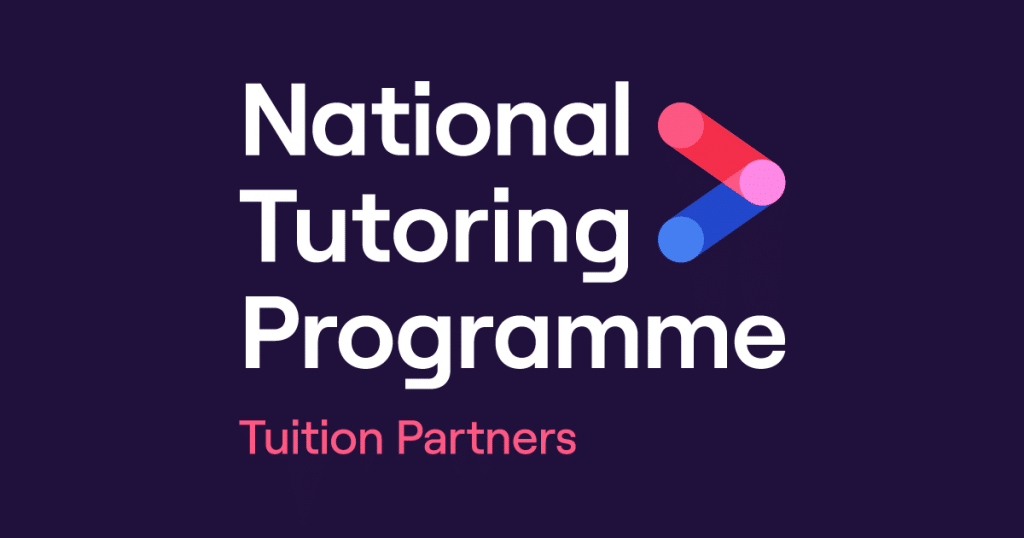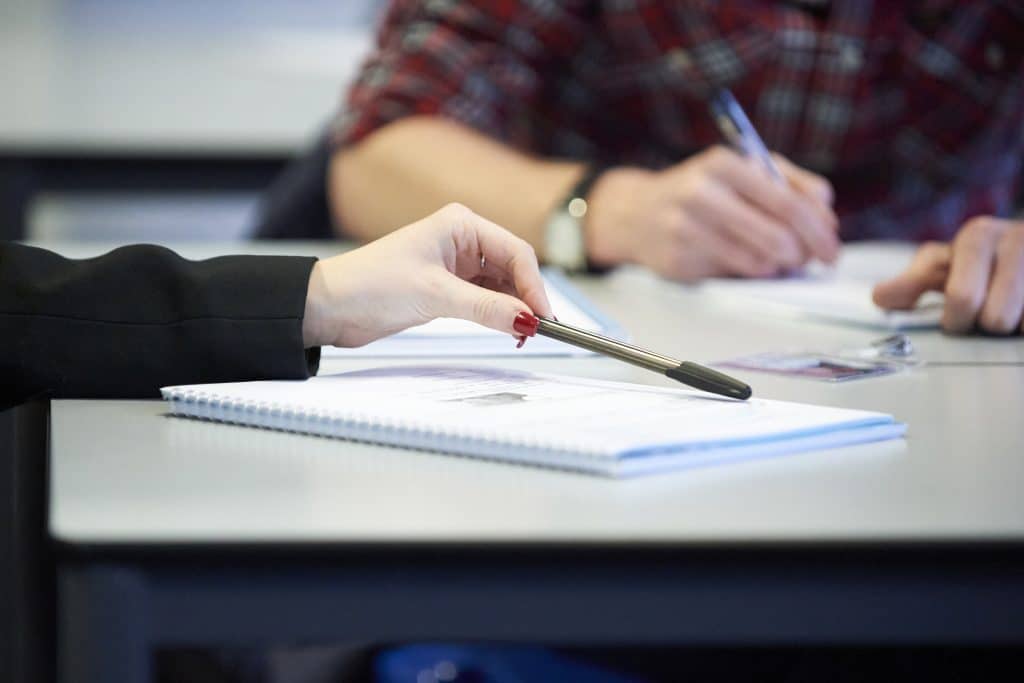Why is Black History Month important for Action Tutoring and its supporters?
20 October 2021
Action Tutoring supports disadvantaged pupils to reach their potential. Across the country, in the cities and regions in which the charity works, there is a higher percentage of Black and mixed heritage pupils classified as disadvantaged compared to their White peers.

Government data from 2020 shows the percentage of pupils eligible for Free School Meals (the Government’s indicator of disadvantage) by ethnic group. In the table we can see 24% of Black African pupils and 28% of Black Caribbean pupils were eligible for Free School Meals compared to 14% of White British pupils, of those receiving their GCSEs in 2020.
Pupils from disadvantaged backgrounds aren’t less able, but they have less access to the tools that support them to progress in school. This means they are not able to reach their full academic potential, significantly impacting their future prospects.
Disadvantaged pupils are, on average, 18 months behind their non-disadvantaged peers by the end of secondary school (EPI report, 2020). In fact, in the 2019 GCSE exams, only 25% of disadvantaged pupils achieved a grade 5 or above in English and maths, compared to 50% of all other pupils (DfE report).
In the Government’s household income data, published in 2021, Black households were most likely out of all ethnic groups to have a weekly income under £600 and as indicated above, children facing socio-economic disadvantage are less likely to achieve meaningful grades in their exams.
Tragically, the data above indicates that our education system is not able to guarantee all pupils the same outcomes and opportunities, regardless of their background or ethnicity, which is simply not fair.
Action Tutoring focuses on reducing the academic attainment gap at the end of primary and secondary school, so that young people’s circumstances don’t limit how much they can achieve academically.
Why history?
At primary school level, 6 out of 8 history topics in the Key Stage 2 curriculum focus on British history and at GCSE level a minimum of 40% of the course must be British history. These topics, recommended by the Department of Education, predominantly focus on White British history, often neglecting other perspectives and contributions which create so much of the diversity and richness in our country’s history.
The curriculum should put more emphasis on the negative legacy of the British Empire and explore much further how the British Empire created a cycle of exploitation which oppressed the Black, Asian and minority ethnic people under its rule.
Dominant narratives in the curriculum of the Industrial Revolution ignore that England ruled over 25% of the world in mid-late 1800s and early 1900s and exploited the natural resources in these territories to fund economic growth in England, whilst simultaneously taking over developing countries’ systems of governance.
The curriculum also doesn’t critique England’s continuing participation in the slave trade after they officially ruled it illegal in 1807, or how England exploited its empire for soldiers during WWI and WWII without guaranteeing them the same rights as White English soldiers.
The curriculum does makes references to the slave trade and civil rights movements in the USA. This is limited as it does not give an accurate picture of England’s involvement in the slave trade, and does not convey similar Black Power movements taking place in Britain.
“If you’re omitting different histories and narratives, you’re saying that these people aren’t part of this country, this nation, this heritage – or they’re not important enough to be taught as common knowledge,” says Melody Triumph, policy specialist at The Black Curriculum – a social enterprise that seeks to redress this imbalance by delivering programmes, training and campaigns about Black British history.
British children from minority ethnic backgrounds deserve to be taught about their history as much as White pupils. Expanding young people’s awareness of the rich history of our multicultural society will help to foster an accepting and less racialised nation. In our English tutoring resources, we have included Black British authors and have referenced the work of the Black Curriculum when reviewing and improving our workbooks because we believe this is essential to a fair and well-rounded education.
History is an important tool we can all use to make sense of our society today. It can help inform, empower and educate. If you want to find out more about Black British history, from the Black Tudors to Black Power movements in the 1980s, take a look at our resource list here and the Black Curriculum’s resources.)
Get on your running shoes – it’s time to make a difference
4 October 2021
After what feels like a long time of being inside our homes, for many, exercise events repopulating our calendars has been truly welcomed. The year 2020 saw the cancellation and postponement of events happening left, right and centre, but in 2021, the Asics London 10K and Hackney Half made a come-back, and all of us at Action Tutoring have been thrilled to incorporate these events back into our annual fundraising campaigns.
London 10K
In the height of summer, on Sunday 25th July 2021, five brilliant runners made up of Action Tutoring staff and members of our volunteer community ran the Asics London 10k, raising over £1,400 for our work and pupils. CJ, one of Action Tutoring’s Training and Quality Coordinators, said:
“Running the Asics 10K for Action Tutoring was great fun for so many reasons! I’ve never been a speedy runner but I do enjoy it as a hobby and de-stressor, and having taken a long hiatus from big runs over lockdowns, it was nice to have a motivation to get going again. I was also very spurred on by my friends and family donating to my campaign, and it was a nice jumping-off point for chats with my network about Action Tutoring. Lastly, the day itself was great fun; I got to enjoy some live music, sightseeing and people-watching along the route (my highlights were a steel band, a bubble machine and a runner dressed as Spartacus) and meet up with some lovely Action Tutoring people after the race to go for some well-deserved chips!”
The pandemic has been challenging for us all, and some turned to trying new things and challenging their comfort zones. Heather Taylor, our Director of Finance and Operations, took up running as a hobby during the pandemic, and like CJ, challenged herself with the London 10K.
Hackney Half
As the weather began to cool down and leaves started to change around us, autumn was in the air. It was time for our staff and supporters to dig out their running shoes and Action Tutoring t-shirts again, in preparation for the Hackney Half, a half marathon which took place Sunday 26th September.
The Hackney Half takes runners through some key London sights, ranging from the Town Hall to the historic Broadway Market and Hackney Wick, with music and celebrations coined the ‘carnival of sound’ taking place across the running route’… just what the Doctor ordered after over a year of uncertainty and four walls! The team again consisted of Action Tutoring staff, including Adam, Director of Delivery, and a variety of Action Tutoring volunteers, with some even travelling from the Isle of Wight and Lancashire to support us! The event raised over £1,500, helping us to support even more pupils in need.
Mollie, one of our Partnership Coordinators, said:
“I got into running in the first lockdown in 2020. Only being able to leave the house once a day, I found running became a staple part of my routine and has now become crucial for my mental health. When the option for running the Hackney Half came up, it seemed like the perfect opportunity to put my running to good use for an achievable challenge, whilst raising money for something I’m passionate about!”
Combined, our fantastic runners and fundraisers raised over £2,900, with each donation contributing towards supporting our work to close the attainment gap and help pupils catch up with lost learning through the pandemic. Did you know that £2,900 has the potential to provide 116 pupils with access to our online classroom for an entire academic year? It could also provide 290 pairs of workbooks for pupils and tutors for in-school programmes!
We’d like to thank all of our London 10K and Hackney Half runners for their dedication, training, perseverance and fundraising, in addition to all their generous donors who supported them, and us, through these inspiring events. Thanks also to Limelight Sports for their organisation of these runs.
Do you fancy a challenge for 2022? Get in touch with our Partnerships and Fundraising Manager, Hannah O’Neill, to secure your place at these two key events next year. Don’t fancy the run but you’re interested in making a donation to help our pupils? Contact Hannah: hannahoneill@actiontutoring.org.uk.
Together, we can all be the difference that makes the difference.
Spotlight on Chester: Going from strength to strength in one of Action Tutoring’s newer cities
30 September 2021
We want to reach as many pupils as possible to progress academically and so we were thrilled to expand into Chester earlier this year.

Chester is a vibrant city with important history (the best surviving Roman wall in Northern Europe), entertainment (Chester Zoo is the most visited wildlife attraction in the UK) and the oldest racecourse in the country and Britain’s oldest sporting venue in continual use.
As one of our newer regions, we started supporting young people in the area in early 2021 during the midst of the second Covid lockdown. It wasn’t an easy start as all the programmes had to begin online and with pupils logging in from home, while schools were such. However, delivery has gone from strength to strength since then.
Free school meals are available to children who have parents receiving benefits or are on incomes of less than £7,400 – so an increase in the number of children on free school meals can be an indicator of declining living standards. Evidence shows that pupils from low income families are less likely to perform well in school, since there are more obstacles in the way of their academic progress (such as lack of access to technology or extra resources).
Accessible tuition in areas like Chester is more important than ever. Our volunteer tutors are committed to making a difference and helping young people reach their full potential. With the help of our Programme Coordinators and the workbooks we provide, they are equipped to make tutoring sessions interesting and engaging.
We pride ourselves on our evidence-based approach to supporting pupils, using baseline assessments and progress checks to monitor the impact our tutoring is having and capturing the final exam results of our pupils and comparing against the national average for disadvantaged pupils.
The first schools we supported were in Helsby and Leftwich rather than in Chester city centre and because the programmes were online, it allowed pupils in these slightly more remote locations to experience the benefits of tutoring.
Fun fact: James Bond was born in Chester, well the current one was, Daniel Craig was born on 2nd March 1968.
Working with multiple schools across England has helped us recognise the needs of schools and better understand the demands and pressures that schools are under, especially after the pandemic. We are excited to continue building stronger relationships with schools and help them provide sustainable academic support to those who need it.
We do more than just tutor. Our volunteers also serve as role models, motivating pills to overcome learning barriers and achieve their potential in life.
‘’The flexibility and desire to accommodate and work with our staff and pupils prior to and throughout the pandemic has been first rate. Communication and clarity of intent have always been clear and acted on swiftly, ensuring staff and pupils have been brilliantly supported. The commitment and desire to develop and advance our pupils has been superb.’’
Bohunt Worthing, Assistant Headteacher
We’re committed to ensuring more and more pupils can receive the education they deserve. Here you can find more information about schools partnering with us.
As one of our newer regions, we are working hard to grow our volunteer tutor community in the area and are keen to engage more volunteers locally to support on our face-to-face programmes.
Are you interested in finding out more about volunteering with Action Tutoring? Read Nichola’s experience here!
Working closely with teachers, our Programme Coordinators are on hand to oversee delivery, manage any issues that may occur during our online or in-person tutoring sessions. They are all passionate about educational equality and work hard to ensure pupils gain the most from their tutoring sessions with our volunteers.
We are well represented in the region by our programme coordinators in Chester, the excellent Cathy, who has been with Action Tutoring since August 2020 and the awesome Anna, who also joined us in 2020. Cathy grew up in the North West and is a fully qualified teacher whilst Anna was previously a trainer in safeguarding.
Always welcoming, Cathy and Anna need your support. So, if you live in Chester, are passionate about supporting young people and looking for a new and rewarding volunteering opportunity, sign up to tutor in our schools today.
Spotlight on Nottingham: The birthplace of Torvill and Dean and where Action Tutoring has been supporting disadvantaged pupils since 2019
27 September 2021
Nottingham. Birthplace of Torvill and Dean. Home to Raleigh Bikes. And since autumn 2019, where Action Tutoring has been supporting disadvantaged pupils to reach their potential.
Do you want to read more about how our tutoring programmes work? Here you’ll find all the details!
Many people believe there is very little child poverty in the UK today, but this is not the case.
Over the past two years, we have been working with schools in Nottingham to support the city’s disadvantaged pupils. Sadly, Nottingham has high levels of deprivation. It ranks eleventh out of the 317 districts in England – we wanted to help tackle this issue.
Children who grow up in poverty lack many of the experiences and opportunities that others take for granted. Providing quality education to disadvantaged pupils can greatly increase their chances of breaking the poverty cycle and create a better future for themselves and their families.
There is a growing concern that the disadvantage gap in education may increase even more in schools as more and more pupils fall into longer term poverty.
Early intervention is important to ensure pupils have the right learning foundation to continue their education. That’s why we are delighted to partner with schools in Nottingham and help them best support primary and secondary pupils.
Studies have shown that Government efforts to “level up” funding for education have resulted in Nottingham schools missing out. The report found almost 60% of the most deprived fifth of schools had seen a real terms reduction in Government funding since 2017-18.
Our tailored tuition supports partner schools in Nottingham to provide further academic support in maths and English to their disadvantaged pupils.
Our volunteer tutors have been going into schools and working directly with pupils from a range of backgrounds, who have greatly benefited from small group tuition.
Fun fact about Nottingham: The UK’s first radio phone-in took place on Radio Nottingham in 1968. It’s ‘thought topic’ was on pest control.
Those who have been joining us for face-to-face tutoring have expressed not only how much they have enjoyed supporting our pupils, but also how much they have also benefited from volunteering with Action Tutoring. Tutors have learned new skills, gained tutoring experience and had the opportunity to give back to their local community.
Our work has even drawn the interest of local Nottingham MPs. Year 6 pupils at a local primary school were awash with excitement when Alex Norris, MP for Nottingham North, visited their programme last year. Being able to demonstrate the progress they had made in subject knowledge; study skills and confidence was a fantastic opportunity.

In 2021-22, we will be continuing our work, supporting young people across eight schools over 15 programmes.
“We can’t wait to get started. As programme coordinators, we love seeing the progression pupils make throughout the year – our end of programme celebrations are always a highlight. We come together – pupils, staff and tutors – to celebrate everything that has been achieved.”
Sam Paterson, Programme Coordinator for Nottingham
We couldn’t be more proud of our volunteers in Nottingham who are committed to our cause and help us reduce the attainment gap one pupil at a time. The help of our tutors can have a significant impact on the pupils’ academic performance, which has been affected by school closures during lockdown.
More studies from the EPI annual report reveal that disadvantaged secondary school pupils in Nottinghamshire are more than 18 months behind their better-off peers.
Researchers at the EPI said a rise in persistent poverty had stunted progress in closing the gap nationally over the last five years, with the poorest GCSE students still an average of 18.1 months behind.
There is now abundant evidence that poverty and social vulnerability require urgent action both in and outside of school.
Jo Hutchinson, report author and director of social mobility and vulnerable learners at the EPI
And we need your help to make all this possible. The pandemic has had a massive impact on young people’s education and here in Nottingham, we need your support with face-to-face tutoring.
Sign up today to be an in-person tutor and be part of something special or recommend us to a friend.
Do you want to read more about volunteering as a tutor with us? Read Sam’s experience, a student volunteer from the University of Nottingham here and learn how supporting others can also be highly rewarding for you!
Becoming a volunteer tutor: How to utilise your skills, whilst learning new skills, in retirement
22 September 2021
Action Tutoring volunteer, Lisetta Lovett, describes her experience tutoring on programme and the skills it has allowed her to develop during retirement.
When I first heard about Action Tutoring, I was attracted to the idea of helping young people from disadvantaged backgrounds catch-up with their peers. This appealed for several reasons, not least as an opportunity in retirement to apply my own skills to help those facing socio-economic disadvantage. Most of us like to feel we are being altruistic; what I had not realised was that tutoring would benefit me too.
Tutoring maths meant developing a new skill set
I have been retired for a few years from a busy medical NHS career. I was looking forward to supporting a young person with their maths at GCSE as my first degree included the subject. I anticipated that the maths would be different, but had not appreciated that I would develop new skills as a result. Namely, although I could, to my delight and relief, answer most of the questions in the workbook that we used, I had to learn how to explain the concepts simply. The process brought me a deeper appreciation of a much-loved subject of my youth.
The Covid pandemic brought its difficulties
The last year has been, for obvious reasons, particularly difficult. Attendance from some of the pupils was patchy. This was often because the ‘bubble’ system meant that they were sent home.
At one point the sessions were allowed to take place from the pupil’s home rather than school. This revealed the challenges these pupils face with respect to inadequate IT facilities. On one occasion a pupil had to use her phone and another was competing for time on their only computer with several other siblings.
Building up confidence amongst the pupils
Some of the pupils I supported had low self-esteem, and their panic at the sight of algebra was palpable. I heaped them with praise when I could, used humour liberally and, with the help of YouTube, found imaginative ways of explaining how to tackle the maths problems. Seeing them develop their confidence was hugely rewarding.
Learning new IT skills
Another challenge was learning to use the Vedamo platform that Action Tutoring uses as their online classroom. This was new to the pupils as well, so the challenge of a new way of learning was shared. The use of IT for teaching is rather less intuitive to people of my generation, but I learnt and became adequately competent, thereby clocking up another skill and some confidence. Some of the tools on their platform can be a little tricky to use, and drawing them freehand produces figures that one might expect a three-year-old to write. At least the pupils had a good laugh at my attempts.
Continuing on for another year
By the end of the year, I was growing in confidence and I agreed to continue with a further five sessions with Year 10s. This went well as I continued to become more experienced with tutoring.
It would be a pity to waste what I have learnt, so I have signed up for another year. Tutoring with young people is great as the process is an intergenerational one. It has put me back in touch with young people today and given me some insight into the challenges they face.
Action Tutoring confirmed as National Tutoring Programme Tuition Partner for a further three years
21 September 2021
Action Tutoring is thrilled to have been successful in its application to continue as a National Tutoring Programme (NTP) Tuition Partner for the next three years.
The charity has been proud to play its part in the catch up drive, and the support from the National Tutoring Programme in 2020-21 enabled the organisation to double its delivery, benefiting more pupils than ever before.
Following a successful pilot year of the National Tutoring Programme, the Government committed to a further three years of funding and appointed Randstad as its supplier. The process then began to recruit the approved Tuition Partners to deliver over this period.
With the support of the NTP, Action Tutoring hopes to increase its reach by an additional 60% this academic year and provide vital tutoring support for nearly 8,500 pupils. The charity aims to help those pupils who have been the hardest hit by the crisis, building their confidence and academic knowledge to enable them to reach their potential.
Action Tutoring can’t achieve these goals by itself, it needs the support of over 3,500 volunteer tutors to deliver the sessions.
With hundreds of opportunities to get involved across the country and online, it’s never been easier to give back. Just an hour a week of tutoring will help support a pupil to progress academically and make up for the time they have lost through the pandemic.
Apply now to become a volunteer tutor to start tutoring this academic year. Similarly, if you are interested in partnering with us as a school, please complete our initial enquiry form.
DAC Beachcroft strengthens support to Action Tutoring through a grant to fund our expansion across northern regions
6 September 2021
International law firm DAC Beachcroft announced it is providing Action Tutoring with a multi-year grant to fund a national expansion project.
The grant will support a ‘northern-belt’ programme, which will help us expand the offer of tutoring support to more disadvantaged school pupils across the north of England.
DACB first formed a corporate partnership with Action Tutoring two years ago, to provide English and Maths tutoring support to disadvantaged pupils in primary and secondary schools.
When we were named as one of the government’s National Tutoring Programme Tuition Partners to help disadvantaged school children to continue learning during lockdown, DACB expanded its support and today has 100 Action Tutoring volunteers in Bristol, London, Birmingham and Newcastle.
This constitutes five per cent of Action Tutoring’s UK-wide volunteering pool and makes DACB one of our largest corporate volunteering partners. In addition, the firm took proactive steps to donate laptops to schools for children without access to computers for home-learning.
Jen Fox, interim-CEO at Action Tutoring, says: “Throughout the pandemic it has been especially difficult for children who have not had the means to continue learning from home. During this time there has been a clear gap across the ‘northern belt’ of the UK, so we are keen to increase the number of tutoring programmes we’re delivering in this area to support more of the pupils who’ve been impacted. This grant is vital in helping us to realise our strategy of increasing the number of schools we work with by 60%, and will provide funding security as we move closer towards our vision of a world in which no child’s life chances are limited by their socio-economic background.
“DAC Beachcroft already has a large number of colleagues volunteering with us, ranging from recent graduates to members of the firm’s senior management team, who have delivered hours of invaluable support to disadvantaged pupils across our regions, and we would like to thank the firm for its ongoing support. Corporate partnerships are an important part of what allows us at Action Tutoring to make our programmes work effectively.”
Virginia Clegg, Senior Partner at DAC Beachcroft, volunteers as a tutor on one of our English programmes, delivering online sessions to pupils in London. She says: “Our work with Action Tutoring is an important part of our commitment to Corporate Responsibility and Inclusion and is enabling us to directly support our communities by helping disadvantaged children across the UK.
“We are delighted to extend our support for Action Tutoring through long term funding. We are providing the charity with the certainty needed to enable it to continue to grow.”
If you are interested in getting involved as a corporate partner, please contact our Partnerships and Fundraising Manager, Hannah O’Neill hannahoneill@actiontutoring.org.uk
Action Tutoring warmly welcomes Randstad as the new NTP delivery partner and reflects on the year so far
2 June 2021
Action Tutoring would like to extend a warm welcome to Randstad as the new National Tutoring Programme (NTP) supplier for the next three years.
The NTP is a positive initiative that is helping disadvantaged young people recover from the educational disruption caused by the pandemic and Action Tutoring is pleased that this support will be continuing. The charity hopes many more disadvantaged pupils across the country can benefit from this academic support and stand a strong chance of reaching their full potential.
Action Tutoring would like to thank the EEF, Sutton Trust, Nesta, Impetus and Teach First for leading the NTP in its pilot year, in the face of many challenges. There have been plenty of positive learnings from this year which will help develop an even stronger programme to reach many more young people next year.
Action Tutoring has been proud to play its part in the catch up drive, working with the NTP, and we look forward to submitting our application to continue as an NTP Tuition Partner over the next three years.
Thanks to the NTP’s support this year, we have been able to grow more than ever before. This has enabled us to reach many more disadvantaged pupils, those who have been significantly impacted by the pandemic.
There’s still half a term left of this academic year and we have already been able to reach 4,804 pupils, since October, with our tutoring support. That’s over double the number of pupils we supported last year.
This simply would not have been possible without our incredible volunteer tutors. 2,515 tutors have given their time for free to help our pupils this year, ensuring they are able to make up for the time they lost during the pandemic. Again, that’s over twice the number of volunteers who supported us last year and we are so grateful to each one.
Together they have been able to deliver an astonishing 23,573 tutoring sessions, both face to face and online while schools were open and to pupils at home when the schools were shut.
We’re looking forward to working with our partner schools for the rest of the term and seeing our pupils continue to succeed!
To get involved as a volunteer tutor, or to partner as a school, please visit the links below.
Balancing learning and health through the crisis – the Government response so far
26 March 2021
This month marked a year since schools were first closed to fight Covid-19 infections. Since then, there’s been a constant debate over how best to balance public health and the long-term impacts of restricting classroom learning. We’ve summarised for you the government response so far to the impact of the pandemic on education.
Closing schools: The last resort
School provides a safe, structured space for children and young people to learn and develop. Not all children can access learning as effectively at home. Weighing up the risk to public health with the risk to children’s wellbeing and future opportunities has been an ongoing challenge for politicians.
Schools in the UK closed from March to September 2020, resulting in up to 14 weeks of lost classroom learning for pupils. During this time, 71% of schools in England remained open to vulnerable children and those of key workers who weren’t at home to supervise learning, compared to 34% in Wales, 30% in Northern Ireland and just 24% in Scotland. Learning time fell significantly for pupils while schools were closed; the Institute for Fiscal Studies has found that pupils did not settle into remote learning during the first lockdown. As schools began to reopen, worries around sending pupils back to classrooms meant that inequalities worsened.
Education Secretary Gavin Williamson called closing schools a “last resort” for suppressing the rate of infection, given the detrimental impact on pupils. However, in January 2021, the Government changed its plan and announced that schools would close in the third nationwide lockdown. A surge in pupils attending in person then led the Government to issue more guidance and encourage key-worker parents to keep their children at home if they could, to relieve pressure on schools.
On 22nd February, the Prime Minister announced that English schools would reopen from 8th March. Although there would be no phased return for the different age groups (a decision criticised by education unions) schools were encouraged to consider staggering the daily timetable to reduce the risk of infection and secondary pupils had to undergo testing before they could re-enter the classroom. A petition calling for school and childcare staff to be prioritised for vaccination exceeded 500,000 signatures and was debated by parliament in January. However, the Government chose not to revise the priority groups to include teachers.
Improving access to remote learning
Once pupils were sent home, the gap in access to technology posed a big challenge. School communities weren’t ready for the sudden switch to remote learning and pupils from disadvantaged backgrounds were more likely to miss out.

Access to devices and stable internet connection has varied greatly throughout the pandemic, with pupils from disadvantaged backgrounds more likely to be affected. The DfE’s Get help with technology scheme was introduced to address this. In England, the Government made efforts to deliver laptops and routers by the end of June 2020 and by 7th March 2021 over 1.25 million devices had been delivered.
Recent research by Ofsted found that many schools surveyed parents to assess gaps in tech, and then made great efforts to source equipment from within the community. Despite these efforts, many pupils still lack adequate technology to access home learning. Schools will continue to be legally required to provide remote learning to pupils that can’t attend school, even after classrooms reopened on 8th March. The pandemic has brought digital inequalities into focus and, as restrictions ease, the need to be ready for remote learning isn’t likely to disappear.
More money for schools to boost recovery
The Government recognised that schools would need more resources to cope with the impact of Covid-19 on pupils. Not all the funding has been made directly available to schools. A proportion is designated for tutoring, paid directly to quality-checked providers that schools can approach for support.
Last year, the Government announced a £1 billion catch-up fund for schools in England for the 2020-21 academic year. This was equivalent to £80 for every pupil in a mainstream school from reception to Year 11 (and more in specialist settings). While schools were offered some flexibility to decide how to use the money, it was meant to be used “for specific activities which will help pupils catch up on missed education”, with the Education Endowment Foundation publishing a guide for schools to identify the most effective approaches.

Around a third of the catch-uping fund made available for schools last year was ring-fenced for tuition. In June 2020, the Government a new National Tutoring Programme worth £350 million would be set up to help disadvantaged pupils recover from the educational disruption caused by Covid-19. Funding would be paid directly to accredited providers, to be approached by schools.
Tutoring organisations of all kinds, private and non-profit, were invited to apply to join the scheme and were subject to quality checks. Action Tutoring was officially approved as a Tuition Partner in November, and the initiative has enabled the charity to reach thousands more pupils in need of an academic boost. In January the scheme was extended until 2022, with an additional £200 million set aside, subject to future spending reviews.
As of February, the NTP had reached 70% of its target schools. However, professor of social mobility, Lee Elliot Major, recently said that the NTP would need to be scaled up considerably if it is to have the desired impact. At present, not all pupils eligible for free school meals are benefiting from tuition through the scheme and the NTP’s data suggests that access is lowest in the North East, North West, Yorkshire and the Humber. The initiative represents a huge opportunity. But more will need to be done to ensure it is available to all those that need it for the long term.
The future of education recovery: Catch-up commissioner appointed
The impact of Covid-19 and school closures on education is deep and will be long lasting. Children and young people of all backgrounds will need additional support for years to come – support that spans academic attainment and mental and physical wellbeing. Sustained action will be needed to address the inequalities worsened by the crisis.
Numerous options have been considered in the public discussion around education catch-up, including longer school days, additional school terms, summer schools and forest schools.

Sir Kevan Collins, former chief executive of the Education Endowment Foundation with 30 years of teaching experience, has been appointed Education Recovery Commissioner. The Commissioner will report directly to the Prime Minister and Education Secretary, and will “consult closely with parents, teachers and schools to make sure every young person has the opportunity to progress and fulfil their potential.”
Whatever plans are announced in the coming months, we hope they will address all the aspects of pupils’ learning and wellbeing that have been impacted by the pandemic. We also hope they will draw creatively on the full evidence available for what works, and that they carefully consider the demands placed on our school workforce.
Action Tutoring’s response to Covid crisis
15 March 2021
Following the Government’s announcement that schools would reopen on 8th March 2021, Action Tutoring made the decision to resume in school tutoring from this date.
From 8th March onwards, Action Tutoring resumed face-to-face tutoring sessions in schools, with social distancing in place. We continued to offer online programmes alongside these in-person sessions.
For many families, this news may have brought anxiety as well as relief, but we know school is the best place to be for the young people we support.
The Government announced that from 9th April, everyone in England would be able to access free, regular, rapid coronavirus testing. We’re pleased that all of our volunteers who are supporting in schools can access these tests to help protect themselves, teachers and pupils. For more information about rapid testing, please see the latest government guidance.
Our tutoring is needed now more than ever before, to help make up for the time lost. Please spread the word about our volunteering and encourage others to get involved.
For more updates, read our blog and subscribe to our newsletter.
Making up for lost time
The Covid-19 pandemic has had a significant impact on pupils across the UK, with the first lockdown resulting in the closure of schools. As a result, we temporarily stopped programme delivery in March 2020.
Schools remained closed for many months and the impact this will have had on pupils is significant, in particular the disadvantaged pupils we support. These are the pupils who are already at risk of not achieving and the absence of education, and any other means of support at home, for this duration of time, will simply push them further behind.
Action Tutoring is a charity that supports the academic attainment of pupils from disadvantaged backgrounds so that their futures are not negatively impacted by their circumstances. Many families will have been able to provide their children with extra resources to enable them continue their education at home, or pay for a private tutor, while schools were shut. For the young people we support, this was simply not an option.
Even before the crisis, disadvantaged pupils were, on average, already 18 months behind their non-disadvantaged peers by the end of secondary school and this will only worsen.
During the first lockdown period and the months following, we were unable to return to schools. Instead, we focused our team and resources on:
- Sharing our materials with our partner schools, to support pupils’ home learning in the short term.
- Keeping in touch with our network of over 1,000 volunteers to ensure they were not negatively impacted by the isolation period.
- Moving our induction training to new volunteers online and began delivering, so that tutors were ready to get started as soon as we were able to deliver again.
- Developing our online tutoring platform and programme, progressing through a testing phase and ready to roll out widely in autumn 2020.
- Speaking out about the impact of the crisis on disadvantaged pupils particularly. Collaborating with other charities and schools to look for solutions and calling for government support too.
- Fundraising to support as many pupils as possible to get back to where they should be academically and enabling them to flourish.
In early October 2020 our tutoring recommenced after nearly seven months, with the support of the charity’s incredible and inspiring volunteer tutor pool, partner schools and staff team who are determined to ensure disadvantaged pupils can still succeed. Additionally, we launched our online delivery in schools, uniting volunteers from across the country with pupils to tutor them in maths and English.
When the government announced school closures once more in January 2020, Action Tutoring took the decision to pause all face to face programmes until after this date, supplementing missed sessions with revision days in the spring and early summer.
During this time, we we were officially approved by the National Tutoring Programme to deliver tutoring to pupils at home. As a result, we began delivering online tutoring sessions for pupils based at home, by switching as many online and in person programmes as possible to home-based delivery.
Action Tutoring is incredibly grateful to all of its team and network who worked tirelessly to ensure its tutoring support could return for the autumn term and was able to continue with home-based programmes. The charity would like to thank everyone involved for their hard work, passion and commitment which has enabled disadvantaged pupils across the country to begin their academic catch-up.
This type of academic support is vital. These pupils need this support now more than ever before to ensure they can get back to where they should be. Action Tutoring needs volunteer tutors to enable this to happen.
Please apply now to volunteer with us and make a difference to young lives.












